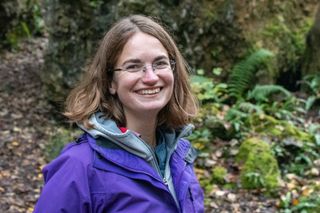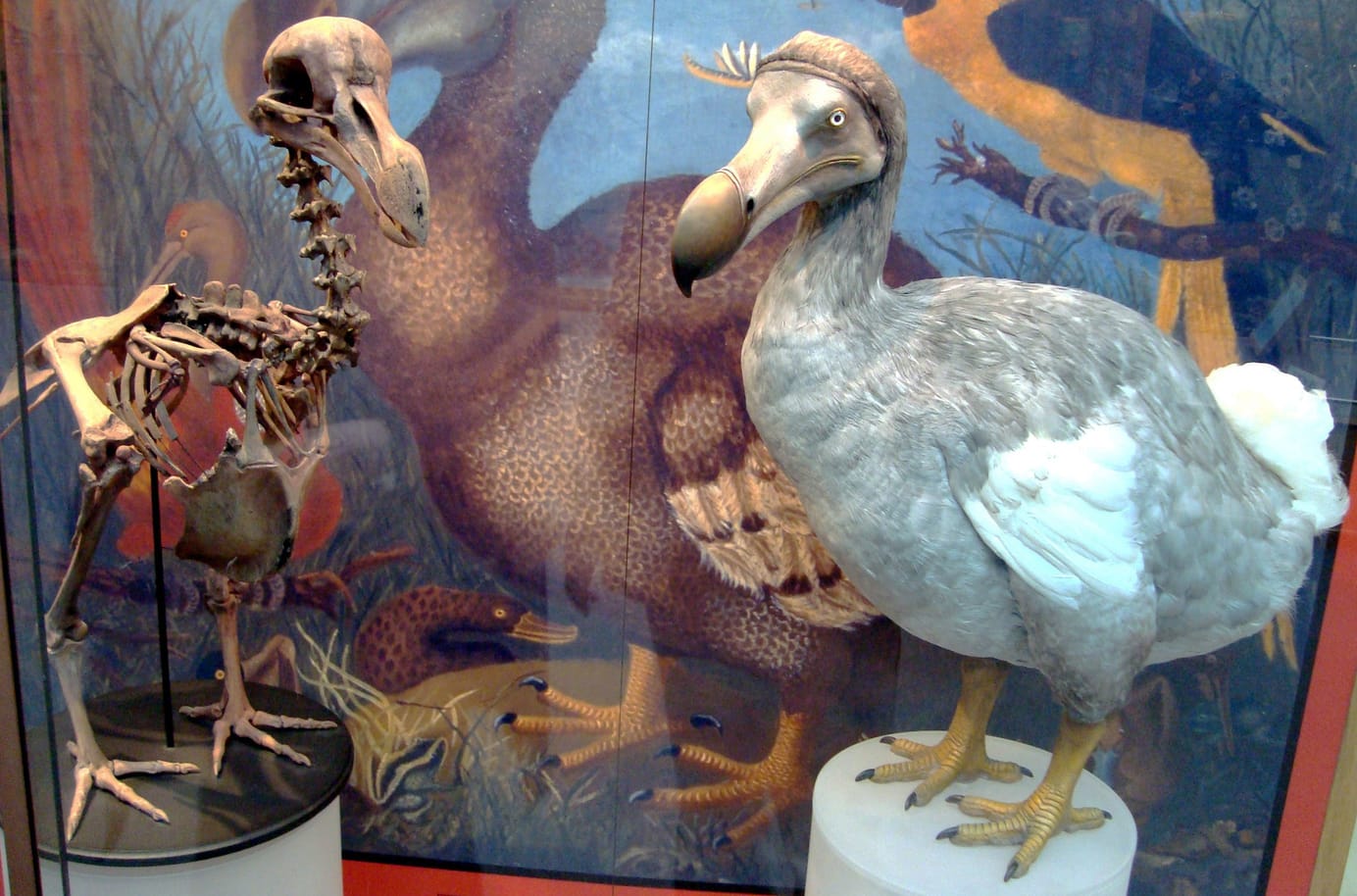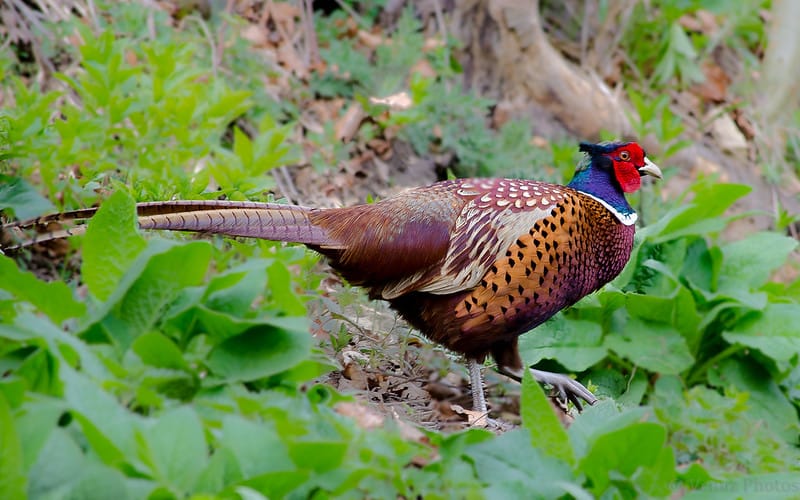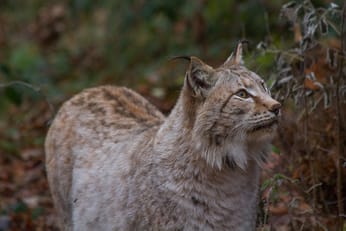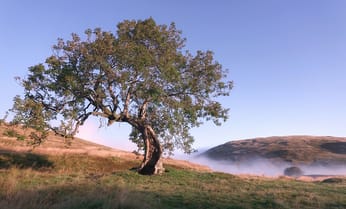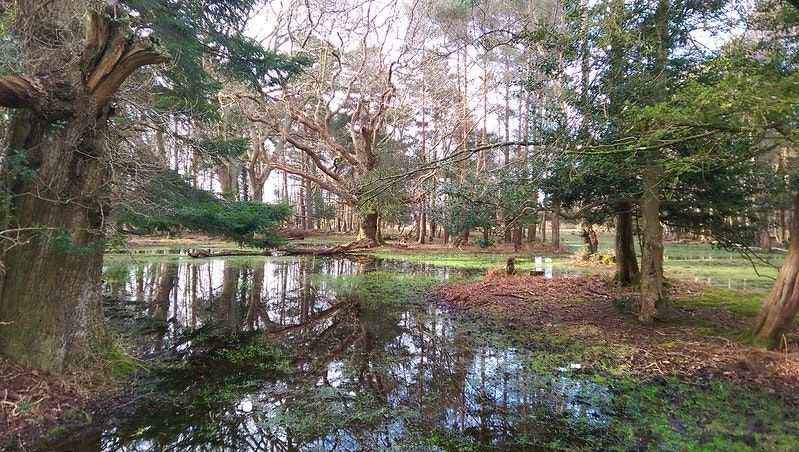
Benedict Macdonald had a vision. Now, he has a plan.
The Rebirding author is launching a new organisation to restore wild nature to the UK.
Last year, in Rebirding, Benedict Macdonald set out his grand plan for nature.
He proposed a radical upheaval of conservation in the UK. Instead of managing small nature reserves, Macdonald advocates for the acquisition of enormous tracts of land that can be returned to nature through rewilding.
Now, he is ready to make this vision a reality.
Macdonald is founding a new organisation called RESTORE. It will bring together landowners, farmers, investors, and scientists in an effort to return life to the country’s denuded landscapes.
“I want it to function as a completely apolitical platform for those who want to restore nature. Not conserve what is there already – that's already being handled – but bring nature back,” he says.
Macdonald is not a professional conservationist; rather, he is a lifelong birder who specialises in making nature documentaries. The vision he sets out in Rebirding was forged through years of travel and research, including the 500 academic papers he read while writing the book, and his personal observations of wildlife declining around him.
This means that his vision, while sometimes controversial, is also fresh. And it has been a phenomenal success. The book was recently awarded the prestigious Wainwright Prize for Writing on Global Conservation.
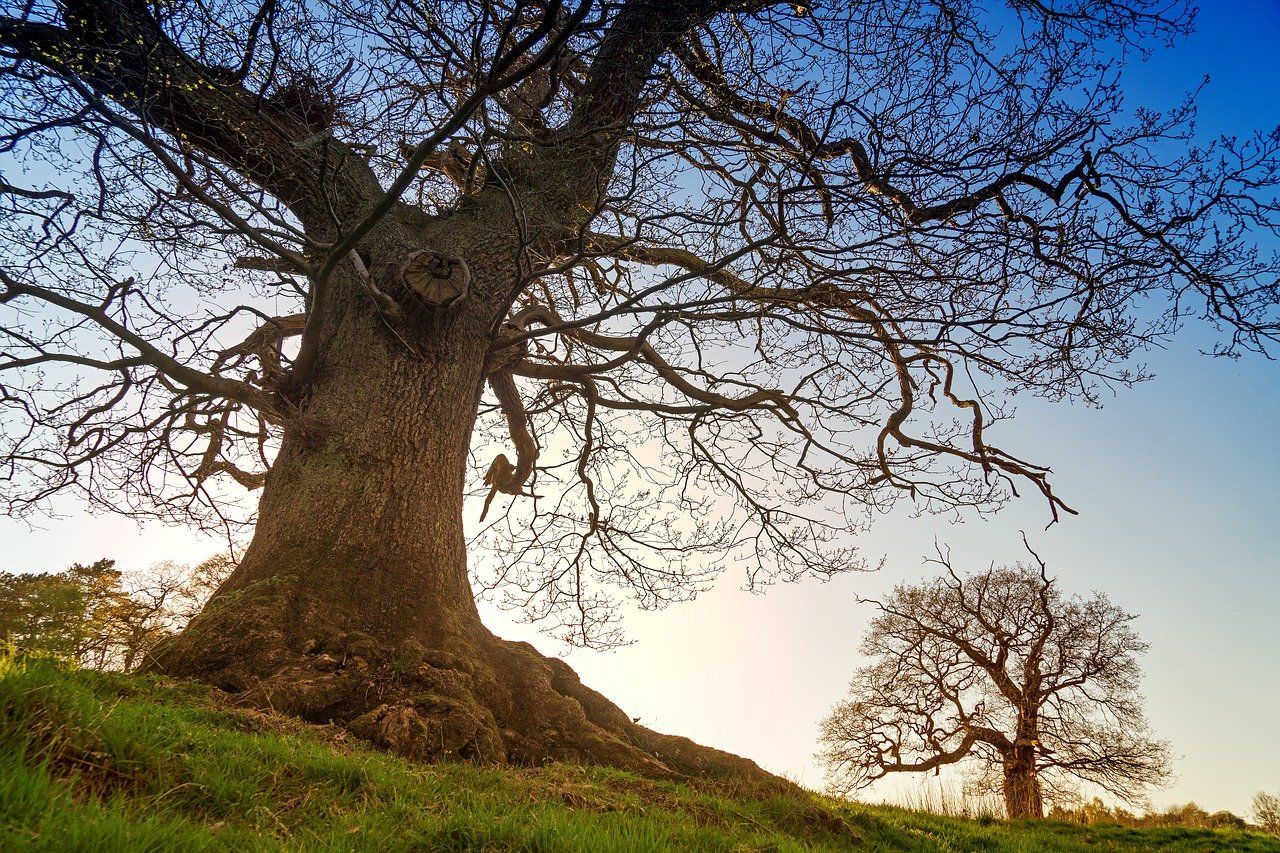
Throughout Rebirding, the work of conservation charities, landowners and government departments is appraised with the same unflinching conclusion: none of it has prevented the catastrophic crash of British wildlife – and it is time for something new.
The RESTORE project is still in its early stages, and the identities of Macdonald’s collaborators remain a closely guarded secret. Nonetheless, his plan to turn his vision into reality could amount to a significant step-change in how conservationists approach rewilding in the UK.
“At this stage, a lot of these people are making big leaps, by coming out of what you might call conventional positions into more radical ones,” he says. “We want to make sure that we've got a proper coherent platform, before rushing out and going public. These things take time. But you'd be amazed at the extraordinary level of interest there is out there, not just among the public, but among landowners.”
The concept of rewilding has been around for three decades, but only became popularised in the UK in 2013, when George Monbiot published his groundbreaking book, Feral. The Knepp Estate, in West Sussex, has been quietly devoted to rewilding since 2001 – the project was thrust into the limelight in 2018 upon the publication of Wilding, Isabella Tree’s account of the farm’s transformation.
The Knepp Estate tends to dominate the conversation, but it is not the only rewilding project in the UK. Faced with the devastating loss of biodiversity, a diverse assortment of landowners and individuals are increasingly taking matters into their own hands.
In Dumfries and Galloway, a group of friends are attempting to recreate the ancient Scottish wildwood across 1,600 acres. In Norfolk, the Ken Hill Estate is turning a thousand acres of the lowlands over to nature. A mathematician, an internet entrepreneur and an environmental campaigner have all recently snapped up small parcels of land with the intention of restoring some vestige of wildness to the English landscape.
Macdonald believes that this model is the way forward; and he thinks that the owners of grouse moors and deer estates, in particular, should abandon their old ways and restore nature to the depleted landscapes in their care.
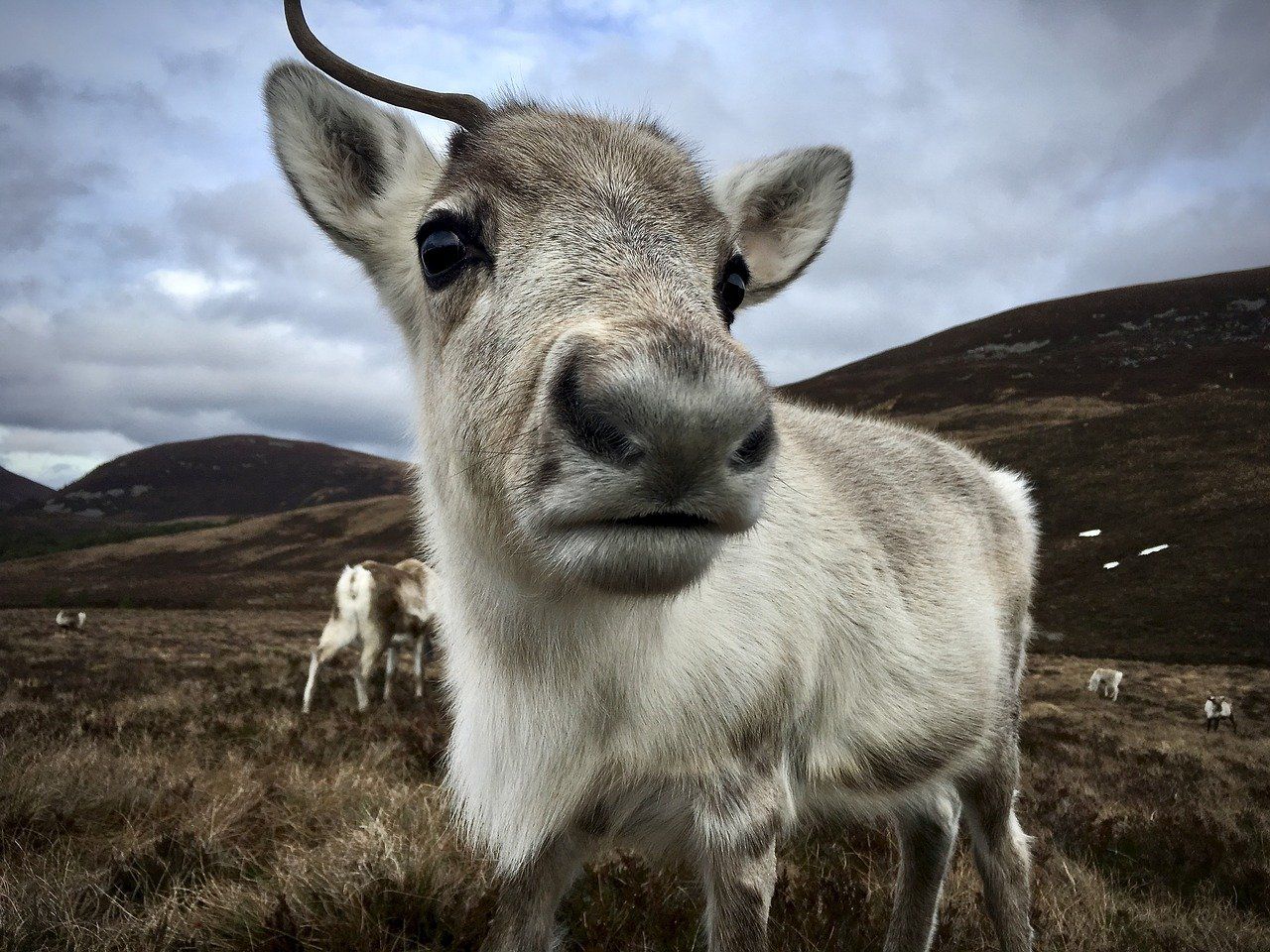
“We have an uneven land model in this country – but in my view, ecologically, that does carry certain benefits. For example, if a large grouse moor owner wants to turn this land back to a more wooded state with golden eagles, he is uniquely free to do so in a way that you or I are obviously not, and our NGOs are not,” he says.
“So I think voluntary transformations by enlightened private landowners have to be encouraged, and I think we need to shred those bits of red tape that are making their life difficult. I'm not talking about giving them carte blanche to release wolves, but certainly to regrow woodland, to reintroduce species, all of these things.”
The plan to include farmers within RESTORE is significant, given that rural communities have tended to view rewilders with caution and even hostility. This reaction has typically been rooted in a fear that they will be forced from their land and left without jobs – an objection that Macdonald strives to overcome in Rebirding.
In places like the Lake District, where there are thousands of small farms, he believes that wilder farming methods, rather than wholesale rewilding, will be key to restoring biodiversity.
“James Rebanks uses the analogy of stones turning over one by one,” says Macdonald. “In other words, you only need a few enlightened farmers with good community connections and, suddenly, like on the Outer Hebrides, you can begin to see entire landscapes farming in a way that is once again sympathetic with the natural world.”
Through RESTORE, Macdonald hopes to turn these disparate visions for a wilder landscape into a “unified force” – although the organisation won’t be launched officially until at least the middle of next year.
“I want to be able to create a platform where these disparate projects and these inspired people can all come together and talk things over, share their ideas, and share what works,” he says.
Macdonald’s plans to reintroduce the Dalmatian Pelican to the UK, which were covered widely by the media, are less advanced – although he certainly hopes that the species will become part of the UK’s birdlife sooner rather than later.
“People always assume that I've got a little breeding colony in my backyard and we're ready,” he says, stressing that this is not yet the case; work is currently limited to scoping out the public’s enthusiasm for the bird and assessing the availability of suitable habitat in the UK. But he believes that the signs are positive on both counts.
“I know a large number of landowners who are very excited about the proposal. But at this stage – and there are no immediate plans – it is an ongoing discussion,” he says. “But could the Dalmatian Pelican come back in the next ten years to Britain? Yes, absolutely it can. And I very much hope that, ten years from now, we'll be able to go pelican watching.”
Not long ago, rewilding in the UK was a fringe idea. That is no longer the case. The conversation has moved onto how to make it happen – and that discussion has inevitably spanned money, ecology, culture and politics.
Rebirding is an attempt to unite these themes through an ambitious – and achievable – vision for British nature. But it is more than a book; increasingly, Rebirding has become a manifesto. For Benedict Macdonald, the time has come to deliver it.
Image credits: Ian Turk, jplenio, Claire Gillan
Subscribe to our newsletter
Members receive our premium weekly digest of nature news from across Britain.
Comments
Sign in or become a Inkcap Journal member to join the conversation.
Just enter your email below to get a log in link.

